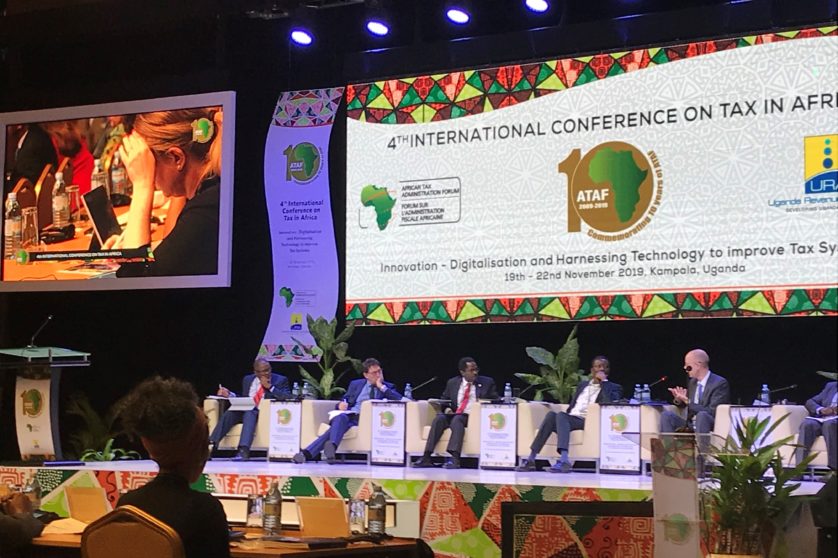Press Release
The International Centre for Tax and Development (ICTD) has been granted $4.5 million by the Bill & Melinda Gates Foundation to establish a 3-year research and capacity building program on tax in relation to digital financial services, and their use, as well as digital ID infrastructure, in enabling low-income countries to more efficiently and equitably raise tax revenue.
Increasing domestic resource mobilization is a priority for low-income countries, as a critical means to finance and achieve the Sustainable Development Goals. This week, over 450 tax officials, experts, and policymakers from more than 46 countries are gathered in Kampala for the fourth International Conference on Tax in Africa on the theme “Innovation – Digitalisation and Harnessing Technology to Improve Tax Systems.”
Digital payments and digital ID provide both welcome opportunities to advance financing development and inducements for governments to take tax policy decisions that can have adverse consequences. On the positive side, the increasing use of digital personal identification (ID) and the scope for using digital technologies in revenue administration, including digital payments, can improve the efficiency, convenience and reach of revenue collection, as well as reduce costs for both governments and taxpayers. On the negative side, the rapid growth in the use of digital financial services, especially mobile money, tempts governments to try to raise revenue easily and at low cost by imposing taxes directly on mobile money and similar transactions.
Governments including Benin, Kenya, Uganda, Cote d’Ivoire, Tanzania, Zambia, and Zimbabwe have already imposed taxes on mobile money and in some cases also on over the top (OTT) media services. Such taxes risk reducing the adoption of digital financial services, and therefore threaten financial inclusion, as well as undermine the potential for revenue collection these instruments could enable. Such charges might also bear particularly heavily on poorer or more vulnerable groups, including women.
As the ICTD’s CEO, Professor Mick Moore says, “The goal of this program is to provide developing country governments with clear, evidence-based policy recommendations around how to leverage fintech, as well as digital ID, to raise tax revenues more effectively and equitably. We anticipate research in this new area will help identify opportunities to broaden the tax base via formalisation of the informal economy and increase the efficiency of value-added, among other taxes.”
The program, titled “DIGITAX: Digital Financial Services, Digital ID and Tax,” will also aim to increase the understanding of both the financial inclusion and domestic resource mobilization communities on this greenfield topic via demand-driven engagements, research partnerships, and communications.
The ICTD is recruiting a Lead Researcher and a Policy and Engagement Consultant for this new programme. See the full vacancy particulars here. The deadline to apply is March 30th, 2020.
ENDS //
For media enquiries, please contact Rhiannon McCluskey at [email protected] or at +44 747 636 0064.
Pictured: ICTD Research Director Wilson Prichard speaking on a panel this morning at the fourth International Conference on Tax in Africa.
Notes to editors:
The International Centre for Tax and Development (ICTD) is a research network improving the quality of tax policy and administration in sub-Saharan Africa. It works with African partners to collaboratively generate policy-relevant research and build African research capacity in the area of taxation. For more information, see: www.ictd.ac

